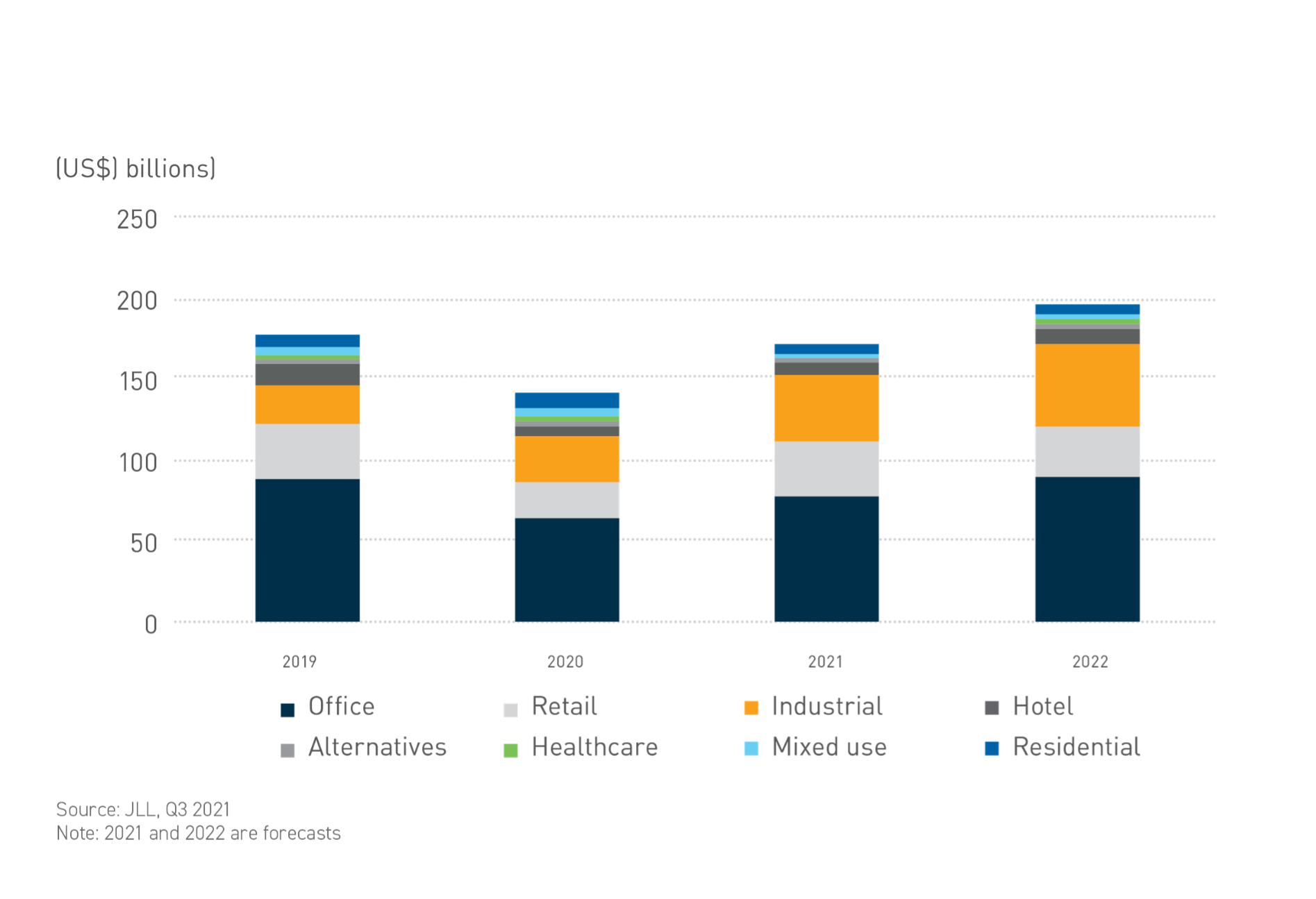How to use commercial property as an inflation hedge
Inflation can be detrimental to an investor as it chips away at savings and investment returns. When inflation picks up, investors often turn to real assets such as property as a hedging strategy. Here, we outline a number of ways in which commercial property can act as a hedge to inflation.
1. Value increase for existing stock
An upside for investors is that inflation can lead to an increase in property values.
Rising inflation can lead to an increase in the cost of building materials for developments in one of two ways. First, should interest rates rise, it would lead to higher borrowing costs and resultingly, increases in the cost of building materials for developments.
Second, and most relevant in the current environment, supply constraints have made access to building material increasingly scarce, thereby driving prices up.
Both of these factors lead to new construction becoming increasingly less attractive or viable. As a result, this can limit the supply pipeline and increase the price for existing properties.
2. Value-add office strategies an alternative to new builds
According to JLL, demand and occupancy throughout the pandemic of modern, quality office stock has outperformed the market as COVID-19 has heightened awareness of health, safety and sustainability (1) . As construction of new stock is strained, this will likely result in an uptick in value-add strategies to redevelop or retrofit older stock with a particular focus on occupant wellness.
3. Lease structure
Commercial property leases can include fixed annual rental increases, giving investors an income boost that offsets the effects of higher inflation. It is common for annual rent increases to be set above the long-term inflationary outlook, or even specifically tied to increases in inflation.
For example, a long-term lease to a government tenant in an office building might have annual rent increases structured at a fixed rate plus CPI inflation.
For quality, well-located stock in an environment with heightened demand due to less stock coming to market, landlords are in a position to charge higher rent.
The downside is that if inflation is too high, it is harder for investors to capture rental growth at or above inflation, resulting in a hit to income streams.
Where are investors looking?
According to JLL, investment into commercial real estate across the Asia Pacific region is tipped to increase by 15% in 2022, after a 30% increase in 2021.(2) As economic activity stabilises, travel restrictions continue to lift and employees return to cities, office investment is tipped to increase by between 20% and 30% this year.

Higher quality assets with lower levels of vacancy, often leased on long-term deals to government, listed and blue-chip tenants will continue to curry favour with investors due to their ability to provide access to regular, reliable income through market ups and downs.
Did you like this wire?
I am Cromwell's Head of Retail Funds Management and will be publishing regularly on Livewire. I hope you have enjoyed this inflation series. Hit follow for first access to my future insights or click the fund card below to fund out more about the Cromwell Direct Property Fund. You can also find out more information at our website.
3 topics